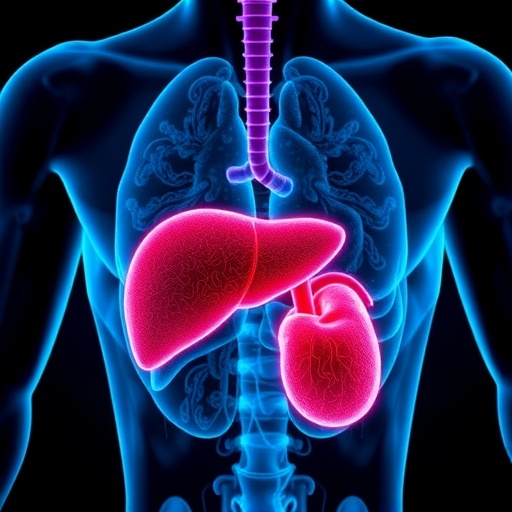A groundbreaking clinical trial has revealed a novel therapeutic candidate capable of revolutionizing the management of severe hypertriglyceridemia—a metabolic condition notoriously difficult to treat with current medications. The investigational drug, designated DR10624, demonstrated profound efficacy in dramatically reducing triglyceride concentrations and liver fat accumulation in a small cohort of adults over a brief 12-week period. This preliminary research was unveiled during the American Heart Association’s Scientific Sessions 2025 held in New Orleans, marking a significant milestone in cardiovascular and metabolic disease therapeutics.
Severe hypertriglyceridemia, characterized by triglyceride levels ranging between 500 and 2,000 mg/dL, presents a formidable challenge in clinical practice due to its association with elevated cardiovascular risk and pancreatitis. Conventional treatments including fibrates, prescription omega-3 fatty acids, and statins frequently fall short of achieving adequate triglyceride lowering or fail to address associated hepatic steatosis effectively. DR10624, a pioneering agent exploiting a multi-receptor targeting strategy, offers hope by engaging three pivotal receptors involved in metabolic regulation: fibroblast growth factor 21 (FGF21), glucagon, and glucagon-like peptide-1 (GLP-1) receptors.
This phase 2 clinical trial enrolled 79 adults, predominantly men of Asian descent, all exhibiting severely elevated triglyceride levels and randomized to receive varying doses of DR10624 or placebo for 12 weeks under a double-blind protocol. The compelling results demonstrated triglyceride reductions exceeding 60% across all active treatment arms, with the lowest dose group experiencing a remarkable 74.5% decrease. Such profound lipid lowering resulted in nearly 90% of treated individuals reaching triglyceride concentrations below the critical 500 mg/dL threshold, a level considered associated with markedly reduced risk of pancreatitis.
Beyond circulating triglyceride modulation, DR10624 notably influenced hepatic lipid metabolism, as evidenced by a substantial 63.5% reduction in liver fat content measured after the treatment period. This finding is particularly salient, given the frequent concurrence of metabolic dysfunction-associated steatotic liver disease (MASLD) in patients with severe hypertriglyceridemia, a condition that can progress to inflammatory steatohepatitis and fibrosis without effective therapeutic options. By ameliorating hepatic steatosis, DR10624 addresses a crucial aspect of metabolic health with potential long-term benefits.
The drug’s mechanism leverages the synergistic activation of FGF21, glucagon, and GLP-1 receptors—each contributing distinct yet complementary roles in lipid and glucose metabolism. FGF21 enhances lipid oxidation and energy expenditure, glucagon facilitates hepatic lipid mobilization and gluconeogenesis, while GLP-1 receptor activation promotes insulin secretion and reduces appetite. The simultaneous engagement of these pathways represents an innovative pharmacological approach, surpassing traditional mono-target therapies.
While encouraging, the trial’s short duration and limited sample size necessitate cautious interpretation. Adverse effects predominantly consisted of mild gastrointestinal symptoms such as nausea, a common issue with GLP-1 receptor agonists. Future studies may benefit from gradual dose escalation to enhance tolerability during extended treatment courses. Importantly, no direct comparative analyses with existing triglyceride-lowering agents were conducted, leaving questions about relative efficacy and safety unaddressed.
The researchers emphasized the urgent need for broader clinical evaluation encompassing diverse populations across different geographic regions. Such studies are vital to validate these early findings and determine whether the impressive biochemical improvements translate into reductions in hard clinical endpoints like cardiovascular events and pancreatitis episodes. Additionally, investigations exploring combinatorial regimens incorporating DR10624 with glucose-lowering agents such as SGLT2 or DPP-4 inhibitors hold promise for comprehensive metabolic control in patients burdened with multifaceted cardiometabolic disorders.
In summary, DR10624 emerges as a promising pharmacotherapeutic innovation for patients suffering from severe hypertriglyceridemia—a population with limited current options and heightened risk of serious complications. By delivering robust reductions in plasma triglycerides and liver fat simultaneously, this tri-agonist medication could redefine treatment paradigms for lipid disorders and metabolic liver disease. The ongoing pursuit of larger, longer trials will be critical to fully elucidate its role in contemporary clinical practice and potentially extend its benefits to broader patient cohorts.
This initial success story also underscores the accelerating trend within pharmaceutical science towards multi-target drug design, aiming to address complex metabolic disorders through integrated regulatory pathways rather than isolated receptor modulation. If verified in future research, DR10624 might pave the way for a new generation of metabolic therapeutics with enhanced efficacy and improved patient outcomes, contributing meaningfully to the global fight against cardiovascular disease, fatty liver disease, and related conditions.
As the scientific community eagerly anticipates further clinical data, healthcare providers and patients alike may look forward to an expanding therapeutic arsenal that more effectively curtails the deleterious effects of hypertriglyceridemia—ushering in improved quality of life and reduced incidence of catastrophic metabolic complications worldwide.
Subject of Research: Investigation of DR10624, a novel tri-receptor agonist medication, targeting FGF21, glucagon, and GLP-1 receptors for the treatment of severe hypertriglyceridemia and metabolic liver disease.
Article Title: Tri-Receptor Activation by DR10624 Dramatically Lowers Triglycerides and Liver Fat in Severe Hypertriglyceridemia: Early Results from a Phase 2 Clinical Trial
News Publication Date: November 8, 2025
Web References:
- https://www.heart.org/en/health-topics/cholesterol/hdl-good-ldl-bad-cholesterol-and-triglycerides
- https://newsroom.heart.org/news/new-medication-reduced-high-triglyceride-levels-improved-cholesterol-and-liver-health?preview=bf18b234b1580db9d01de1b96292b2e6
Keywords: Hypertriglyceridemia, triglycerides, DR10624, FGF21 receptor, glucagon receptor, GLP-1 receptor, metabolic dysfunction-associated steatotic liver disease (MASLD), cardiometabolic disease, lipid metabolism, cardiovascular risk, fatty liver disease, lipid-lowering therapy




